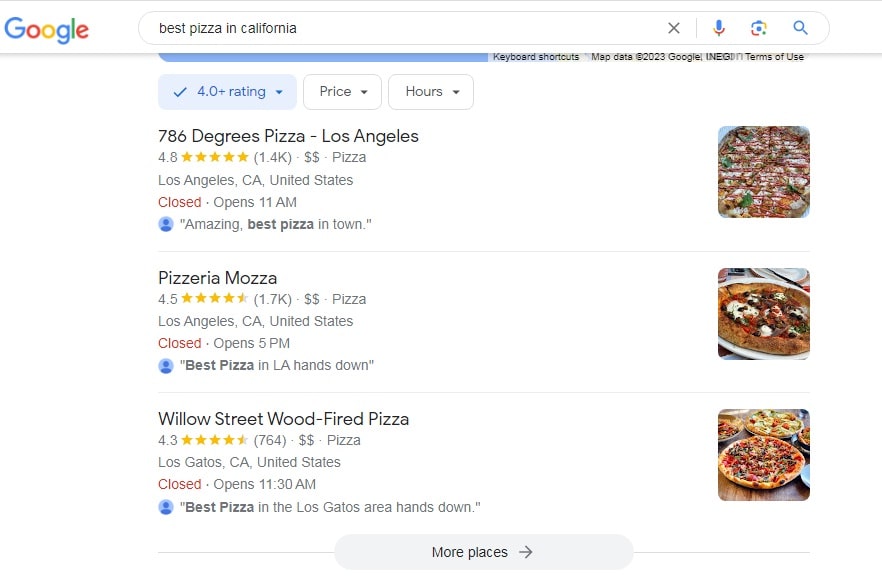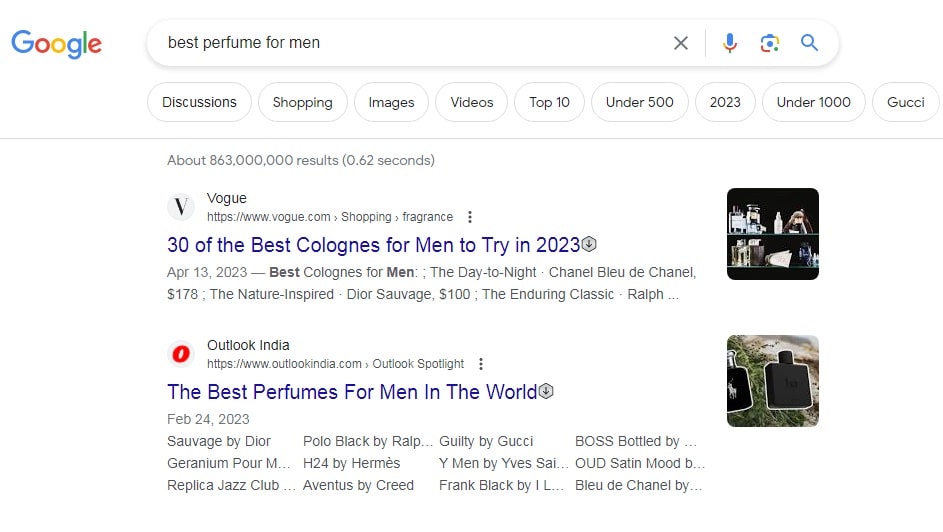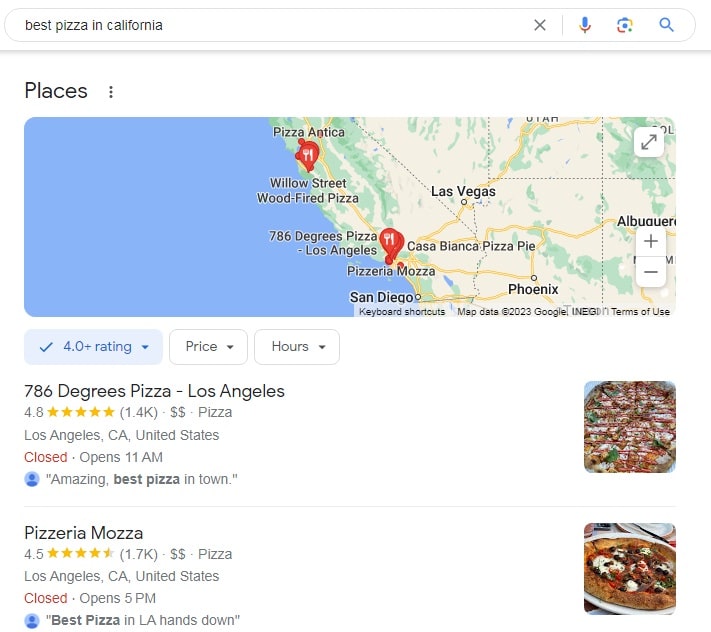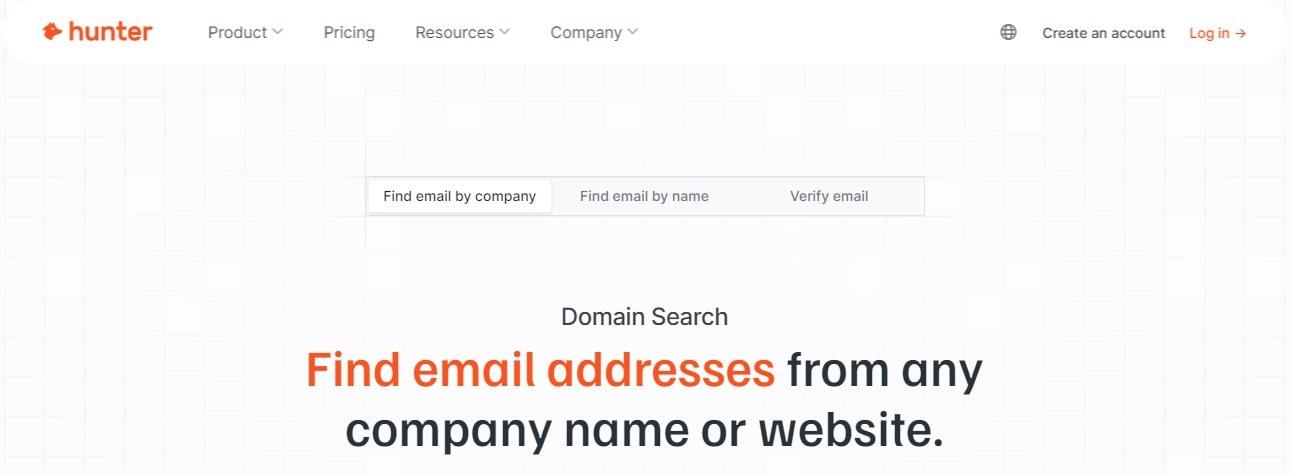To be clear: SEO for small business will be very challenging in this 2023.
Furthermore, it was never simple. Maybe in 2010, when SEOs could deceive Google using tactics like keyword stuffing, PBNs, and a variety of other techniques like backlinks from message board posts. Additionally, there was a lot less rivalry.
Nowadays, popular websites essentially own all keyword clusters and niches, making it difficult to rank higher. However, there are countless opportunities for small businesses to rank in their niches for the appropriate keywords.
We’ll go over how small businesses like yours can improve their SEO and attract organic traffic in this article.
SEO for Small Business
A combination of techniques known as SEO (search engine optimization) for small businesses will increase traffic to, clicks on, and conversions from, your page on Google. In other words, it elevates your website above the competition’s listings in search results to increase the visibility of your company.
If your local and online SEO strategies are successful, your website ought to appear on the first page of search results, similar to the links below.

Did you know that 25% of people click on the first page of search results, according to Search Engine Journal? In addition, according to Backlinko, the first page of search results has an average CTR of 31.7%. These figures serve as potent reminders of how important SEO is for organic traffic.
Is SEO absolutely necessary?
Let’s put it this way: if you don’t have a comprehensive SEO strategy, you are significantly worse off than your rivals. While your page remains at the bottom of the ladder and never rises, their SEO efforts will keep them moving up.
Additionally, your organic traffic will suffer, which could have serious ramifications for your business if it heavily relies on online marketing.
How SEO Helps You
As was already stated, SEO is essential to the success of your company. But let’s explore that more thoroughly.
What advantages does SEO in particular have?
1. Boost Search Engine Organic Traffic
The organic traffic that SEO generates for small businesses is its most important advantage. In addition to saving you money on expenses like paid advertising, organic traffic frequently attracts customers who are further along in the purchasing process.
Due to their targeted searches, your organic traffic leads are more likely to become customers.
For your website to be seen by the majority of users, you must rank on the first page of search results. According to Smart Insights, being in the top spot can increase your click-through rate by two times compared to the second-place result.
Even better, taking control of the featured snippet can help you surpass the top spot and increase your chances of attracting more organic traffic.
2. No need Expensive Paid Ads
Now, you might be wondering if using paid advertising can replace SEO spending. Consider a scenario where the first three links are advertisements for cat sitting.

You can “artificially” make your links appear first in Google by using paid advertisements.
In many cases, it can be a smart move that produces quicker results. The real query is whether or not those outcomes will be long-lasting for your company.
Paid advertising can be very expensive, especially if you constantly use it in place of SEO. The fact that clicks never guarantee sales is another drawback. Getting people to click on your advertisement is one thing, but you also need to persuade them that your product is worthwhile.
Paid advertising should therefore be used as part of a marketing strategy because it has advantages like increased reach and better targeting. But it can’t fully take the place of SEO.
3. Boost the quantity of new leads
Every fresh lead offers a different chance. New leads have the potential to become devoted customers, spread the word about your offerings among their contacts, and post eloquent reviews on your website.
For a small business to grow its customer base, it is imperative to continuously look for new leads.
5 SEO Tips for Your Small Business
1. Keyword Research and Analysis
The core of SEO is keyword research. Basically, you won’t get encouraging traffic results if no one searches for the goods you sell or the subjects of your content.
According to a study by Ahrefs, knowing your keywords will help you stay out of the 90.63% of pages that receive no organic traffic from Google. Yes, you read that correctly—keyword research is crucial.
In addition to assisting with website traffic growth, keyword research assists with:
- See how much traffic you can get for specific keywords
- Know how hard it is to rank for certain keywords
- Create content plans for keywords
- Understand the likeness of searchers becoming customers
A list of potential topics for searches by your potential customers serves as the foundation for keyword research. Say you run a perfume supply shop. Searching for “perfume” keywords is what you’ll do. Your initial keywords might be:
- perfume
- perfume ingredients
- perfume for men
- perfume for women
Seed keywords are meant to be ambiguous, so you won’t use them in their original form when writing content. They are intended to be broad topic suggestions that you will later focus on.
After creating a list of seed keywords, you can quickly look up the keywords that your rivals are using. Search Google using one of your seed keywords.

When deciding which websites are competitors, use your best judgment. You shouldn’t automatically treat well-known companies like Gucci and Dior as competitors. Instead, look for websites that are similar to your own or that you are attempting to emulate.
Once you identify your main rivals, you can research which search terms are most effective for them. An excellent feature for this can be found in tools like Ahrefs.
Numerous top keywords can be ranked for by a successful company. Does that imply that you should aim to rank for the same keywords? Not always, as big businesses typically have bigger budgets to make sure they consistently rank for the most competitive keywords.
In this situation, think about the keywords that will drive more traffic to your particular products or product line.
For instance, if your target audience is looking for succulents, you could use a keyword associated with the most well-liked, reasonably priced, and long-lasting succulent. You’ll get more leads as you become more specific.
Finding disconnects or gaps between the competition and the audience, then coming up with solutions to close those gaps, are the general goals of a successful competitor analysis.
But there is more to competition research. In actuality, there are typically a ton of potential keywords that your rivals might not be using. Use tools for keyword research like Moz, Semrush, Ahrefs, Google Keyword Planner, Keyword Surfer, etc. to find them.
Whichever you intend to use, they all function generally the same. When you enter a seedword, the keyword tool searches its database for keywords based on that keyword.
Since it is efficient and free, Google Keyword Planner is undoubtedly the most talked-about tool.
In order to avoid overlapping the keywords you enter, Google Keyword Planner uses your seed keywords to generate ideas.
You will now need a paid tool like Semrush or Moz if you want to advance your keyword research and gain access to more information. These tools typically provide you with a greater variety of higher-quality keywords.
2. Enable Google Location
Businesses today that have a physical location need a local SEO strategy to attract customers. According to BrightLocal, local SEO is so effective that consumers’ use of Google to assess local businesses increased from 63% in 2020 to 81% in 2021.
You miss out on the main way that customers find local businesses if you ignore local SEO.

Did you know that you could make your website appear in the search results below as well as the map? This implies that you have a double chance of getting website clicks and attracting customers.
Your Google My Business account allows you to specify your location. Google will need to confirm a few details with you, such as your business’s type, address proof, opening and closing times, etc.
The procedure is not too difficult and is very worthwhile.
3. Add reviews to your Google Location
Customer reviews work best in conjunction with Google Maps results. Up to 90% of potential customers are reportedly influenced by online reviews when making an online purchase, according to Dimensional Research.
As a result, make sure the star ratings are clear on the first search result page.

Prospective customers can learn a lot from your reviews about the services and goods you provide, the number of people who endorse you, your use cases, etc.
Even if you run an online store, your website should always have reviews. Because people are constantly looking for product reviews, simply having product review pages could increase your chance of getting organic traffic.
4. Make Link Building to Your Site
You need backlinks in order for your content to rank. Backlinks from reputable websites tell search engines like Google that other people trust your content and that it is valuable enough to appear in rankings.
Among the most popular techniques for obtaining backlinks are:
- Guest posting (publishing content on reputable blogs or podcasts)
- PR campaigns (an SEO or marketing campaign)
- SEO outreach (sending emails asking for backlinks)
- Links from customers (links in reviews)
- Forums and comments (Quora, product reviews, TripAdvisor)
Always keep in mind to search for reputable, respected, well-liked, and high-quality blogs when attempting to obtain backlinks.
Contrarily, stay away from obtaining links from low-quality guest posts, private blog networks, duplicate content, and websites in other languages as Google might consider them to be spam. Even worse, this could actually hurt your rankings.
You may not be aware that the links you accept on your website have varying values and have an impact on SEO. The websites you choose to link to, the anchor text you use, whether you choose a follow link or a nofollow link, and any meta tags you associate with the linking page can all have a significant impact on the value of your website when you spread link love.
Use Hunter.io if you need to find a specific employee’s name or email address when conducting link outreach.

It’s a fantastic tool to incorporate into your SEO strategy for small businesses.
5. Choose Best and Reliable Hosting Provider
Last but not least, a crucial element in your SEO rankings is picking a multifaceted hosting provider that gives you a competitive edge.
The following are the key criteria to consider when picking a provider:
– Fast Loading
Making sure your website loads quickly will enable users to take all the actions they desire, making it simpler for Google to recognize that users value your website and increasing its chances of ranking.
– Reliable Server
According to the Service Health Dashboard, Amazon’s 2013 30-minute outage cost them $66,240 per minute in revenue.
Having said that, it’s crucial to stay online, and finding a trustworthy host is a crucial aspect of this.
The standard in the industry today is 99.95% uptime. Any hosting company with an uptime rating under 99% needs to be avoided.
– Top Security
You must find hosting provider that provide top security on their platform. To safeguard your website from threats like brute-force attacks, data leaks, compromised logins, and more, website owners can trust ASPHostPortal.
– Backup
Just imagine if your files suddenly disappeared or you accidentally delete your important files? Can you retrieve it easily? Make sure that your hosting provider always keep your backup. With ASPHostPortal, we do daily backup to our backup server so customers can easily retrieve their data if there is any problems.
Choosing a hosting company like ASPHostPortal, which offers quick loading, dependability, and features to help your site rank, is crucial for your website. Naturally, you can rely on your keyword research and other crucial SEO techniques, but your hosting company will work behind the scenes to support your SEO efforts.
Conclusion
For small businesses, SEO is a protracted process that is essential for generating organic traffic and long-lasting leads. Despite the fact that the information in this article might seem overwhelming, you can develop and implement your SEO strategy gradually.
When waiting for the results of your SEO efforts, keep in mind that it always takes time. Be persistent and patient.

Yury Sobolev is Full Stack Software Developer by passion and profession working on Microsoft ASP.NET Core. Also he has hands-on experience on working with Angular, Backbone, React, ASP.NET Core Web API, Restful Web Services, WCF, SQL Server.



